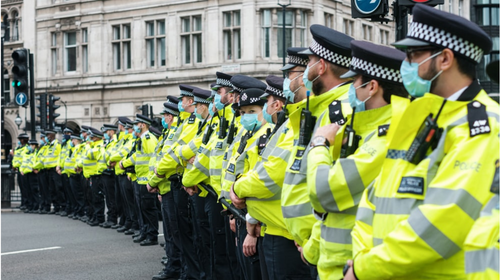The United Kingdom has announced a new set of sentencing powers that will allow judges to bar criminals from pubs, concerts, and sporting events, alongside imposing travel bans and driving limits.
The measures, part of the government’s Plan for Change, are aimed at cutting crime and tightening community punishments. Offenders will also face restriction zones confining them to specific areas.
Unveiling the policy, Lord Chancellor and Justice Secretary Shabana Mahmood said the reforms would ensure justice is more visible and effective.
“Widening the range of punishments available to judges is part of our Plan for Change to cut crime and make streets safer,” Mahmood said in a statement on Sunday.
“When criminals break society’s rules, they must be punished. Those serving their sentences in the community must have their freedom restricted there too. These new punishments should remind all offenders that, under this Government, crime does not pay.”
The government explained that the policy is designed to toughen community sentences, deter reoffending, and push offenders back on track. Those leaving prison under probation supervision will also face expanded restrictions, including mandatory drug testing.
Criminals without a history of substance misuse will, for the first time, be included in the testing regime. Offenders who breach these new conditions risk being hauled back to court or returned to prison, depending on their sentence.
Previously, judges could only issue limited bans, such as prohibiting football attendance for crimes committed in stadiums. Under the new law, such restrictions can now be imposed for any offence, regardless of circumstance.
According to the government, the changes are part of broader sentencing reforms designed to ensure punishments reduce crime and prison spaces remain available for dangerous offenders.
Over 2,400 prison places have opened since July 2024, with £7 billion earmarked to deliver a total of 14,000 additional spaces. Investment in the Probation Service is also set to rise by £700 million by 2028/29, up from the current annual budget of £1.6 billion.
Figures released this week show the number of probation officers has grown by seven percent in the past year, while trainee officers increased by 15 percent. The government has pledged to recruit a further 1,300 probation staff this year, in addition to the 1,000 trainees recruited in 2024.
New technology, including artificial intelligence, will also be deployed to cut administrative workloads, freeing probation officers to focus on supervising high-risk offenders.

